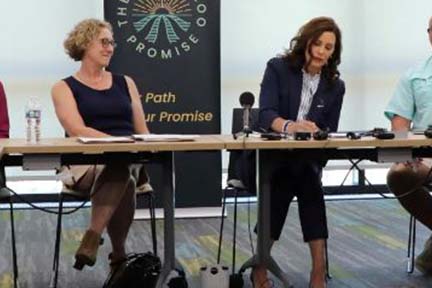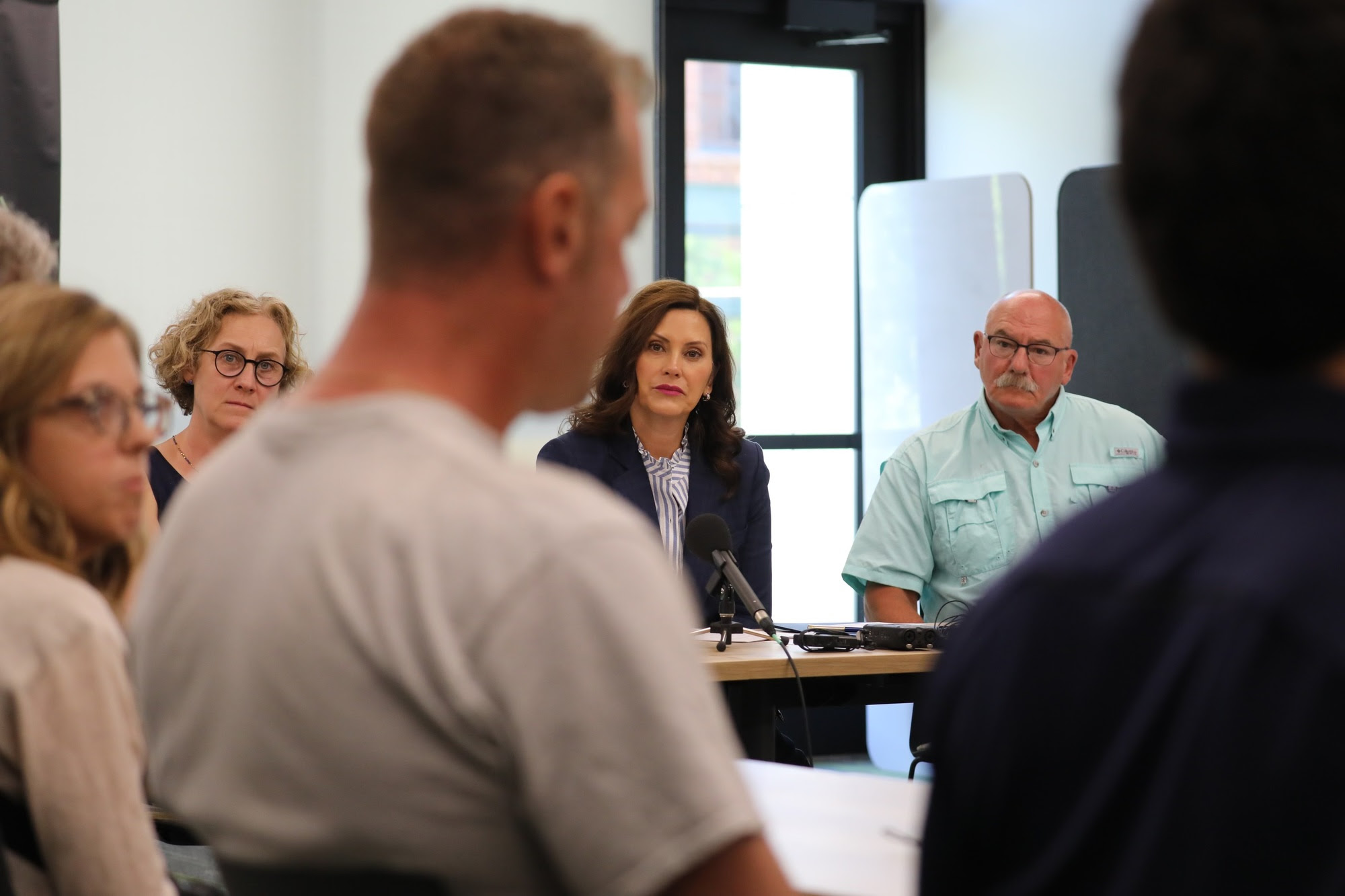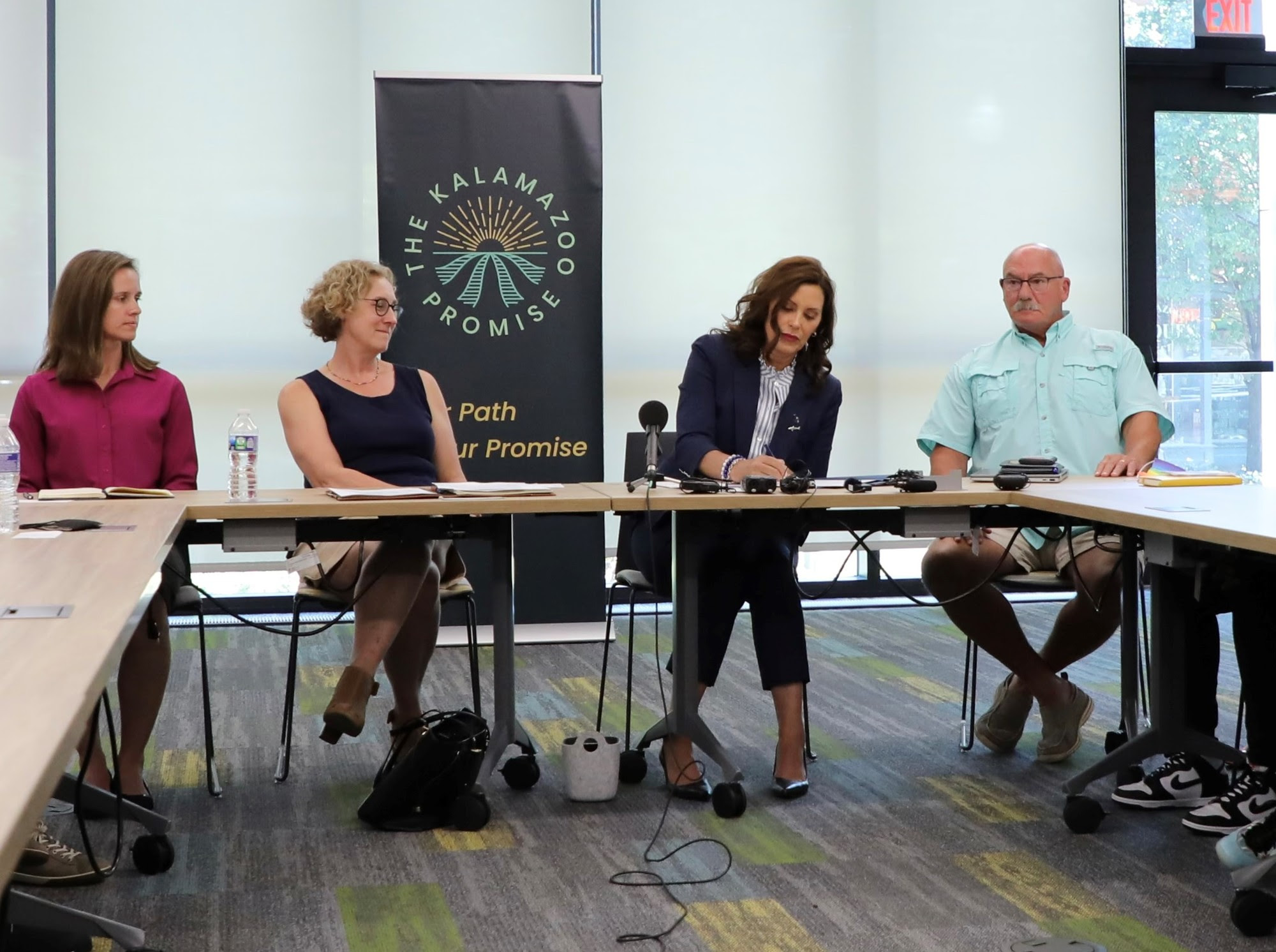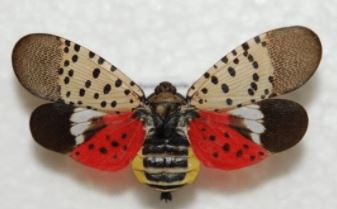
Michiganders to be on lookout for spotted lanternfly
|
| The following news release was issued yesterday by the Michigan Department of Agriculture and Rural Development.
July 26, 2022 MDARD asks Michiganders to be on the lookout for spotted lanternfly, an invasive species threatening agriculture, natural resourcesThe Michigan Department of Agriculture and Rural Development is asking for the public’s help by being on the lookout for spotted lanternfly, an invasive insect with the potential to seriously affect Michigan’s agriculture and natural resources. This insect feeds on more than 70 different plants including grapes, apples, hops and hardwood trees. “Our agricultural and natural resources are part of Michigan’s identity, and spotted lanternfly has the potential to forever change that landscape,” said Robert Miller, MDARD’s invasive species prevention and response specialist within the Pesticide and Plant Pest Management Division. “With its ability to wreak havoc on grapes, apples, hops, stone fruits and more, this could be devastating to Michigan’s farmers and the state’s food and agriculture industry.”
Spotted lanternflies cannot fly long distances, but they lay eggs on nearly any surface like cars, trailers, firewood, outdoor furniture and more. Before leaving an infested area, MDARD is asking people to check vehicles, firewood and outdoor equipment for unwanted hitchhikers. Individuals and businesses receiving shipments from states known to have spotted lanternfly also should be on the lookout for adults or egg masses on goods and packing materials. “With the current rate of spread, it is possible spotted lanternfly could reach Michigan at any time,” Miller added. “Public awareness and reporting are essential to early detection, which provides the opportunity to contain an infestation before it becomes a widespread problem.”
Before traveling, check out the map of confirmed spotted lanternfly locations. For additional information on identifying or reporting, visit Michigan.gov/SpottedLanternfly Michigan’s Invasive Species Program is cooperatively implemented by the Michigan departments of Agriculture and Rural Development, Environment, Great Lakes, and Energy and Natural Resources. /Note to editors: Accompanying photos are available below for download. Credits and suggested captions follow. SLF folded wings: Spotted lanternflies are more likely to be seen with wings folded. Look for grey to brown wings with black spots, and black-striped wing tips. Photo courtesy of Lawrence Barringer, Pennsylvania Department of Agriculture, Bugwood.org. SLF wings: Adult spotted lanterfly’s bright wing coloration is hidden when wings are closed. Photo courtesy of Robert Gardner, Bugwood.org. SLF egg mass: Spotted lanternflies may lay egg masses on vehicles, outdoor furniture or other items that can be transported to new areas, leading to new infestations. Photo courtesy of Emilie Swackhammer, Penn State University, Bugwood.org./ |
|||
|
|
|||





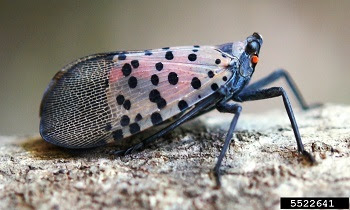 First detected in the United States in 2014 in southeastern Pennsylvania, spotted lanternfly has been spreading rapidly across the northeastern states. To date, infestations have been confirmed in Connecticut, Delaware, Indiana, Maryland, Massachusetts, New Jersey, New York, North Carolina, Ohio, Pennsylvania, Virginia and West Virginia.
First detected in the United States in 2014 in southeastern Pennsylvania, spotted lanternfly has been spreading rapidly across the northeastern states. To date, infestations have been confirmed in Connecticut, Delaware, Indiana, Maryland, Massachusetts, New Jersey, New York, North Carolina, Ohio, Pennsylvania, Virginia and West Virginia.
 Spotted lanternfly causes direct damage by sucking sap from host plants while secreting large amounts of a sugar-rich, sticky liquid called honeydew. This honeydew and the resulting black sooty mold can kill plants and foul surfaces. The honeydew often attracts other pests like yellow jackets, flies and ants, affecting outdoor recreation and complicating crop harvests.
Spotted lanternfly causes direct damage by sucking sap from host plants while secreting large amounts of a sugar-rich, sticky liquid called honeydew. This honeydew and the resulting black sooty mold can kill plants and foul surfaces. The honeydew often attracts other pests like yellow jackets, flies and ants, affecting outdoor recreation and complicating crop harvests.
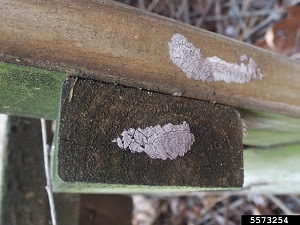 Female spotted lanternfly lay egg masses in the fall, which resemble old chewing gum, with a gray, waxy, putty-like coating. Egg masses can survive winter temperatures to hatch in the spring. Hatched eggs appear as brownish, seed-like deposits. Spotted lanternfly juveniles are wingless and are black with white spots, developing red patches in their final juvenile stage.
Female spotted lanternfly lay egg masses in the fall, which resemble old chewing gum, with a gray, waxy, putty-like coating. Egg masses can survive winter temperatures to hatch in the spring. Hatched eggs appear as brownish, seed-like deposits. Spotted lanternfly juveniles are wingless and are black with white spots, developing red patches in their final juvenile stage.
